Shopify
14 minute read
Shopify vs Shopify Plus: What Are the Differences Between the Two?.
LAST UPDATED:
August 15, 2023
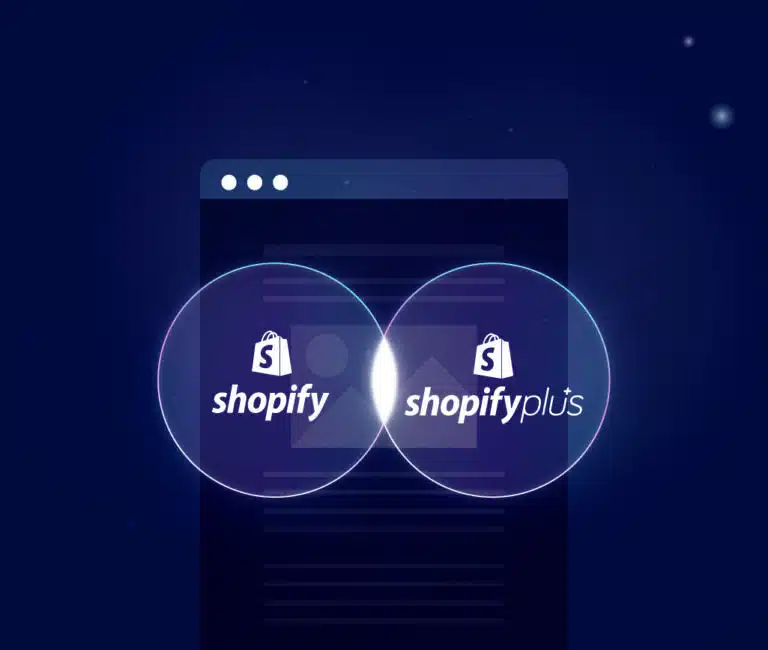

The eCommerce industry is booming, and Shopify is among the most popular platforms for businesses of all kinds to sell online.
Countless renowned companies rely on its intuitive design, scalability, and devoted customer service to power their online stores.
However, when your company grows, you might realize that an upgrade is necessary.
This is where Shopify Plus comes in. The new and improved platform presents itself as an omnichannel solution.
To help you choose the best option for your online store, we’ll compare Shopify with Shopify Plus.
Founded in 2004, Shopify has become extremely successful since.
Because the platform’s creators were motivated to launch a shop selling snowboarding gear, Snowdevil, that shop was the first to go live on the site.
It started out as an eCommerce platform and has expanded quickly.
As an example, the platform adopted mobile technology in April 2010. Then, in August 2013, Shopify introduced its payments platform, a key factor in the company’s popularity.
On the other hand, Shopify Plus was launched in 2014. The platform was designed to provide rapidly growing businesses with more flexible options to support their expansion. Millions of shops can count on Shopify Plus’s scalable, robust platform.
Online stores can choose between the standard Shopify plan or the more advanced Shopify Plus plan.
Let’s compare and contrast these options to see how they differ.
General Overview
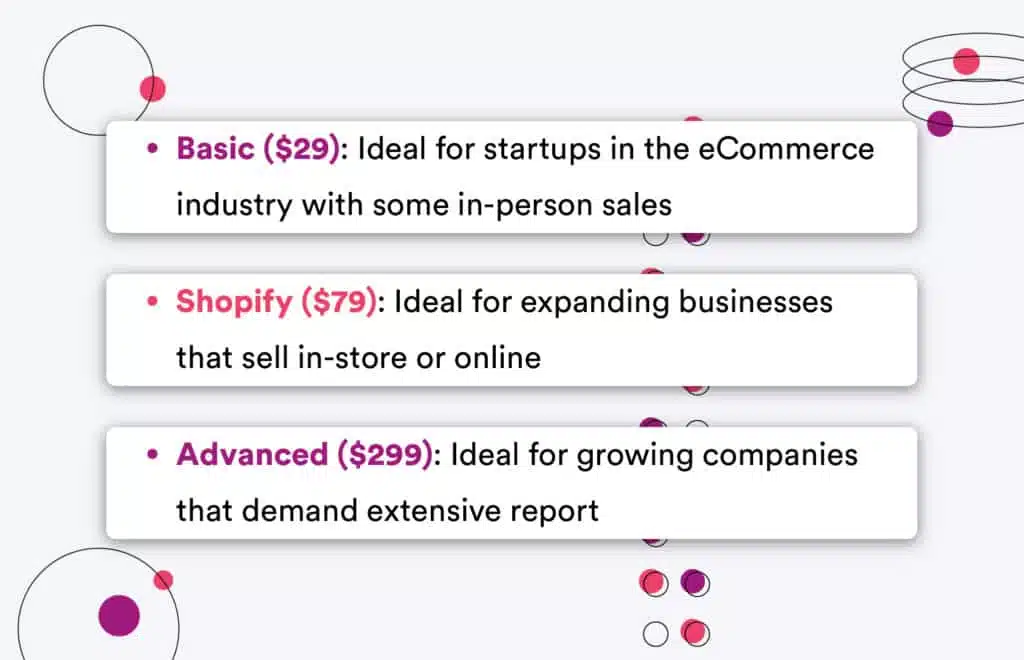
Shopify has three monthly plans available:
- Basic ($29): Ideal for startups in the eCommerce industry with some in-person sales
- Shopify ($79): Ideal for expanding businesses that sell in-store or online
- Advanced ($299): Ideal for growing companies that demand extensive reports
Each one offers a free trial period of 14 days to help you decide which one is the best for your requirements and budget.
The base price of Shopify Plus, including the initial setup and basic integrations, is $2,000. The price structure is more sophisticated than the more basic programs because the total fees you pay are determined by the number of sales.
Winner: When put side by side, they are equally matched. Both Shopify and Shopify Plus offer excellent value for the money, despite their significantly different prices.
Theme Design and Customization
Launching a Shopify store allows you to select a theme, which is essentially a website template.
When comparing Shopify and Shopify Plus, how do their theme options and customization tools go against each other?
How Are These Themes Developed?
Shopify’s customers can choose from plenty of professionally designed premium and free storefront themes. This collection of themes and templates covers various industries, from electronics to fashion.
They can be modified to feature the company’s or organization’s colors, logo, typefaces, and so on, while maintaining the overall look and feel of the theme or template.
Themes are developed the same way for both Shopify and Shopify Plus.
Shopify also has a network of partners who can support those using Shopify Plus with the creation of custom themes for their online store.
However, some themes were developed solely for Shopify Plus stores.
Winner: Both sites provide a level playing field, as far as we can tell. Shopify and Shopify Plus give users access to Shopify’s basic template library, where they can choose from the free, basic templates that Shopify offers.More premium themes can be purchased for either Shopify or Shopify Plus for as little as $140.
What Theme Options Do You Have in Each?

As mentioned, Shopify provides both free and premium themes for its users. Some themes have variations that allow editing to suit the user’s needs.
Additionally, Shopify Plus themes can be modified to provide maximum customization.
Because of the customizable nature of the themes, it is often impossible to distinguish which online stores use Shopify or Shopify Plus.
Winner: In deciding which is superior, themes aren’t the deciding factor between Shopify and Shopify Plus.
How Easy Is It To Edit These Websites?
Shopify websites are easy to edit — they can be made even if you don’t know any HTML. Additional pages can be created quickly to increase sales of products and stock.
Websites created with Shopify Plus have the same intuitive interface as those made with Shopify.
Similarly, this platform doesn’t require you to master coding. Both Shopify and Shopify Plus provide a user-friendly system for creating websites.
Creating a fully functional and visually appealing Shopify web design is simple and requires no coding skills.
Winner: Since both platforms are edited the same, both are winners here!
Sales Features
Shopify provides some of the best sales features in the increasingly competitive eCommerce industry because the company values customer satisfaction and loyalty.
What Types of Discounts and Promotions Can I Offer Out of the Box?
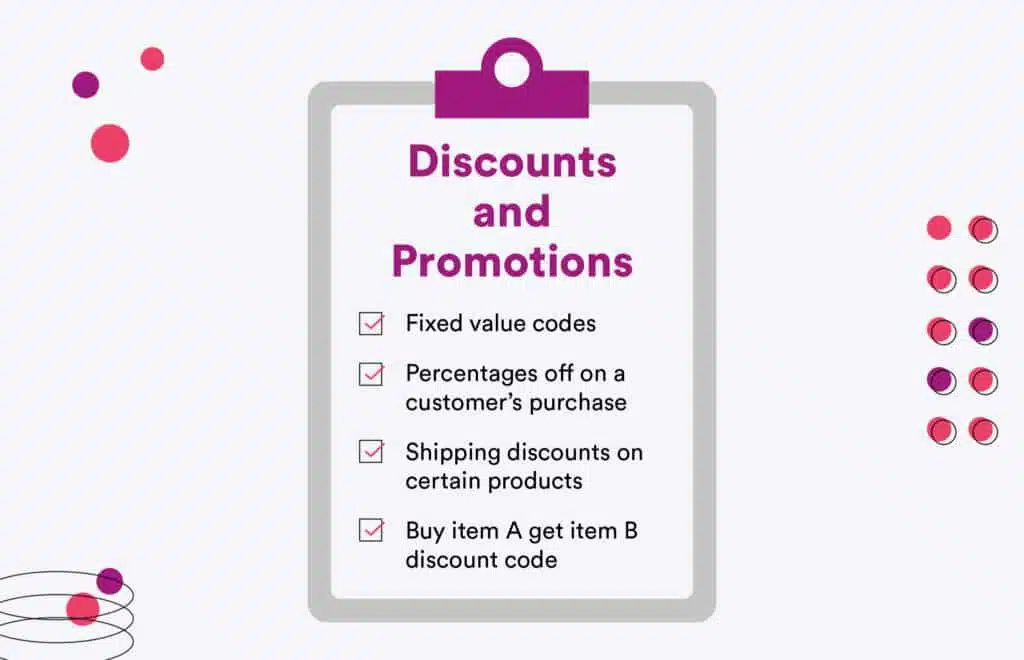
Off-the-shelf, Shopify merchants may provide their customers with the following coupon codes for discounts and promotions:
- Fixed value codes
- Percentages off on a customer’s purchase
- Shipping discounts on certain products
- Buy item A get item B discount code
On the other hand, Shopify Plus has the same deals as Shopify but also includes a few extra features. It uses the LaunchPad plug-in to increase promotion and discount offerings.
With LaunchPad, you can schedule a temporary discount, have it go into effect without any more work on your part, and then have it all reset once the sale has ended.
Winner: The winner depends on the level of promotion and discounts you want for your online store. However, Shopify offers several great deals without spending a lot of money.
Checkout Customization
Shopify has a native checkout experience that is built-in and standard across all stores.
If you want to have the ability to fully customize the checkout experience to match your brand or even provide additional information regarding purchasing from your store, shipping information or even additional upsell opportunities, you will need Shopify Plus.
Checkout customization lets you take the checkout experience farther using scripts for unique messaging, deals, and free product offers.
Overall, these options can be invaluable for increasing the average order value overall.
Additionally, if you sell internationally, customizing the Shopify checkout will probably be necessary.
Winner: Both are winners here as their respective checkout customizations are valuable to their users.

A highly customized shopping experience from initial landing page to checkout can significantly impact conversions. Shopify Plus provides you with the ability to customize the checkout experience to set your brand apart from the competition visually as well as really taking your upsell game to the next level for your eCommerce store.
Christi Carnahan, Digital Strategist
Plug-ins and Integrations
One of Shopify’s best-selling points is the App Store, where users can find and install useful plug-ins and apps to improve their online store’s functionality.
More than 7,000 paid and free apps are available on Shopify. The best Shopify stores use several apps to enhance the functionality of their site.
What Does Each Ecosystem Look Like?
Shopify’s ecosystem is comprised of the following:
- Merchants: Shopify’s customers
- Shopify Partner Program: Agencies, app developers, designers, etc., that are known Shopify Experts. (Fun fact: We’ve been a Shopify Partner since June 2016!)
- Shopify App Store: Other add-ons can be purchased to improve your website from app developers focusing on enhancing the Shopify experience.
On the other hand, Shopify Plus is built the same way as Shopify itself, right down to the ecosystem and people who work together to make Shopify a success.
They have what they call “Merchant Success Managers” who are there to help out their users. This program is designed to ensure that merchants make the most of the service they’re paying for.
They offer training and support for third-party plug-ins, products, and platforms so that you may reach your maximum potential.
Winner: Both platforms win here due to their supportive ecosystem. For this reason, Shopify is among the top eCommerce platforms available today.
What Type of Quality Control Do These Marketplaces Offer?

With Shopify, the Partners program provides access to a network of experts that can answer your questions about the Shopify platform and help you get the most out of your experience.
The result is a better overall experience for shoppers and a new tool for merchants who need assistance setting up their online store.
Using the best Shopify apps and combining them with an existing website, users can customize the customer experience and gain an advantage over the competition.
Shopify Plus shares the same thorough approach to quality control as the rest of Shopify’s platform.
They have the same process in place to ensure the most qualified people are involved in making Shopify one of the top eCommerce platforms on the Internet.
Additionally, the Merchant Success Manager program collaborates with your in-house team of professionals to offer guidance on any recently implemented integrations or features.
Winner: Both, since quality is in Shopify’s name and game! Shopify and Shopify Plus offer users an excellent user experience in the marketplace.
SEO
When it comes to search engine optimization (SEO), both Shopify and Shopify Plus have robust tools at your disposal.
What SEO Functionality Does Each Platform Offer by Default?
From the get-go, Shopify advises its users to optimize their content and website structure for search engines and explore other aspects that may contribute to SEO performance.
Shopify recommends adding Shopify images and looking at the age of your domain name, the authority of your website based on engagement and other metrics, and the number of organic links leading to your store from other websites.
On the other hand, With Shopify Plus, you can rest assured that your site’s SEO will not be negatively affected by factors like duplicate pages. Sites built using Shopify Plus are often more complex, with multiple page variations.
While both Shopify and Shopify Plus offer similar SEO tools, businesses using Shopify Plus are likely to confront more challenging situations.
Store owners using Shopify Plus should be aware of how more extensive inventories, JavaScript frameworks, and new technologies affect SEO.
Winner: SEO is crucial to any website; after all, how will anyone find your website without it? When the platform was developed, both Shopify and Shopify Plus kept search engine optimization (SEO) in mind, and they continue to do so even now.
Payment Options and Transaction Fees
Accepting payments is simple with Shopify. Transaction fees are calculated as a percentage of the entire order volume.
What Options Are Out There for Each, and How Do They Work?
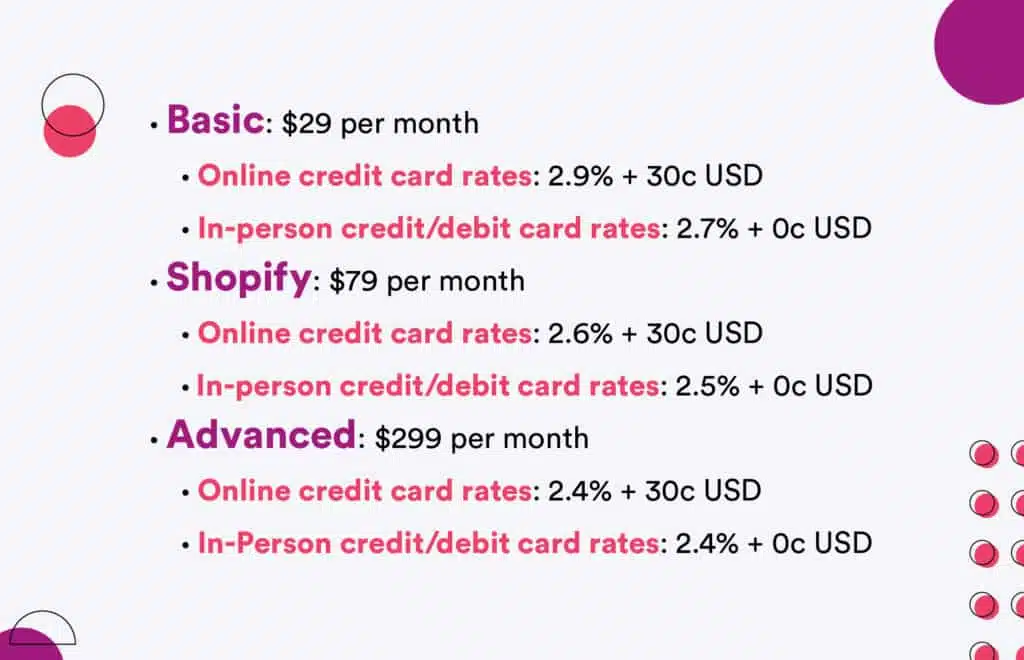
Shopify has three set package subscriptions, which have their own payment and transaction fees:
- Basic: $29 per month
- Online credit card rates: 2.9% + 30c USD
- In-person credit/debit card rates: 2.7% + 0c USD
- Shopify: $79 per month
- Online credit card rates: 2.6% + 30c USD
- In-person credit/debit card rates: 2.5% + 0c USD
- Advanced: $299 per month
- Online credit card rates: 2.4% + 30c USD
In-Person credit/debit card rates: 2.4% + 0c USD
On the other hand, Shopify Plus has two set pricing structures for external payment methods:
- Domestic: 2.15% + 30c USD
- International: 3.15% + 30c USD
If your company uses Shopify Payments, you won’t have to worry about transaction fees, just like with the other Shopify plans.
Winner: Both services have comparable rates and fee structures.
Security
Since Shopify’s security protocols are constantly updated with the latest best practices, customers can shop with peace of mind.
How Is Security Managed for Each Platform?
Every Shopify website and plan comes with a secure sockets layer (SSL) certificate that verifies the site is legitimate and prevents data breaches.
In addition, PCI-DSS (Payment Card Industry – Data Security Standard. Payment Card Industry-Data Security Standard) compliance ensures that they follow the rules for handling credit card information securely online.
Rather than sending customers over to a separate site to enter their payment card information, Shopify handles all of that internally.
On the other hand, Shopify Plus is built around Shopify’s tried-and-true protocols for a safe online store, which is why website security is equally crucial.
Shopify Flow and Fraud Protect are two of the extra security features available to Shopify Plus merchants.
They both work to reduce the likelihood of fraudulent purchases being made on the platform.
However, Shopify’s basic fraud detection feature is enough for most small businesses.
Winner: Since both Shopify and Shopify Plus value their customers’ online safety, it’s safe to say that both are among the most secure eCommerce platforms available. When compared to other SAAS platforms, Shopify’s security is unparalleled. It meets PCI Data Security Standards and has a specialized security team. No other eCommerce solution currently offers this level of safety.
Maintenance Costs and Long-Term Support
Shopify is the industry standard in eCommerce technology, and it backs that up with first-rate support and service for its user base.
Whether using a basic Shopify or a premium Shopify Plus account, you’ll always have access to these features and more.
How Frequently Do We Need To Worry About Updates?
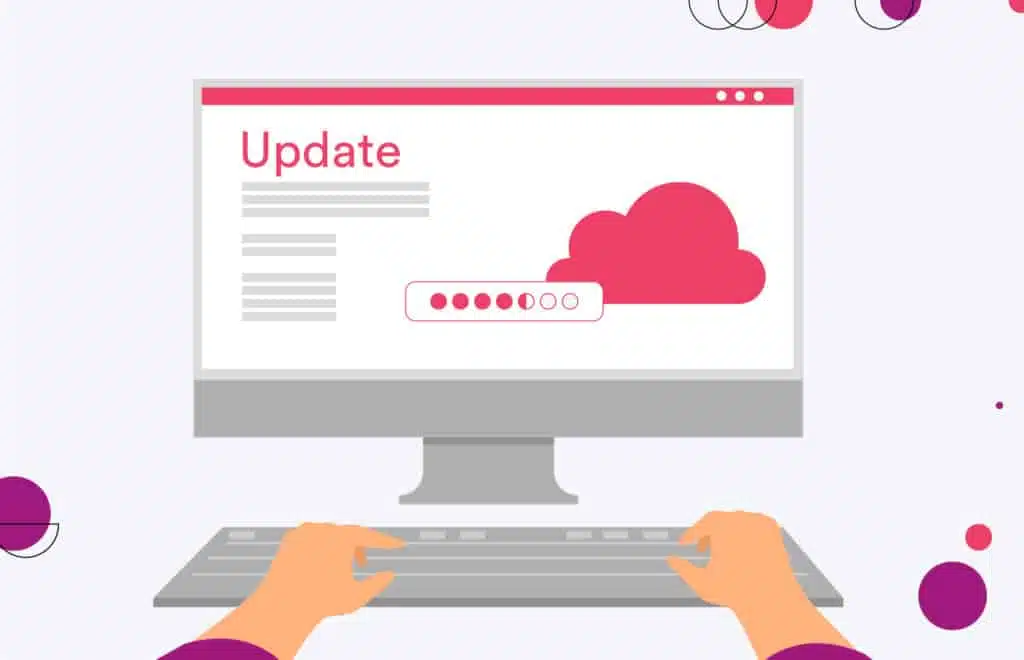
Since Shopify handles everything in the background, their customers never have to deal with system updates.
Updates are a common way to introduce new features to users, yet they may go unnoticed by most users.
Shopify Plus updates happen automatically in the background, just like Shopify, so they won’t interrupt your potential buyers while they’re shopping.
If you’re using another platform that doesn’t automatically notify you when updates are available, you need to check back regularly to be sure you have the most secure version of your software installed.
A few of them also force you to place your site into maintenance mode during update installations, making it inaccessible to users.
Shopify’s upgrades are always automatic, so you never have to worry about entering maintenance mode.
Winner: Both Shopify and Shopify Plus roll out updates seamlessly and quickly without disrupting their merchants or customers.
Do the Platforms Themselves Offer Support?
Shopify offers round-the-clock support to its customers through online chat, phone, and email.
In case you have any issues, their website features an excellent resource center. They include video explanations to questions their customers might have as well.
Shopify Plus offers the same support as standard Shopify plans.
And, as mentioned earlier, Shopify Plus users are paired with a Merchant Success Manager who can be relied on for personalized assistance.
Shopify also offers its users access to an advanced learning program called the Shopify Plus Academy, which includes a variety of resources like courses, webinars, and reference materials.
You can learn more about using Shopify Plus, best practices in eCommerce, and how to implement technical integrations through the program’s self-paced online courses.
Winner: As opposed to standard Shopify, Shopify Plus comes with several added features and extra support options that are tailored specifically to you and your online store.
How Many Developers Are There That Know How To Work on Each Platform?
Roughly 42,200 Shopify Partners know how to work on the Shopify platform. We’re one of them! Feel free to contact us and ask any questions you may have about Shopify.
On the other hand, Shopify Plus works with experts that know the platform like the back of their hand.
Partners in Shopify’s Plus Partner Program offer merchants comprehensive services, such as custom web development, UX, and design.
Winner: Both, since it takes a team to make Shopify and Shopify Plus as successful as they are! They have a great support system with developers and partners who know the ins and outs of Shopify and Shopify Plus.

Shopify’s strengths as an eCommerce platform are as follows:
Security Measures
Shopify puts a premium on security.
Thus, they’ve implemented the following measures:
- Hosting plus subdomain: When you sign up you can get your own domain name
- SSL certificate: This is automatically included with each Shopify subscription
- PCI-DSS compliance: A PCI-DSS is required to make sure credit card information is stored correctly. Rather than requiring users to install a separate plug-in, Shopify provides this functionality built right in
These safeguards are in place to ensure the security of your website and its visitors. After all, customers will not be willing to give up their credit card information to a website that isn’t secured with an SSL certificate!
Storage
Every online shop comes with a great deal of data, but what becomes of it? Shopify’s unlimited data storage space is an excellent feature for this.
With their monthly subscription, you get access to unlimited storage capacity.
24/7 Support
Shopify puts a premium on customer support. Your business will always have someone to turn to, as their services are accessible around the clock, and their response times are typically very quick.
You can get in touch with them through phone, online chat, or email.
In addition to a blog, online courses, and webinars, there are numerous community forums and substantial documentation available that might help answer any questions.

Here are some of Shopify Plus’s many benefits as an eCommerce platform:
Additional Resources
With Shopify Plus, you’ll have access to a dedicated team of experts who will help you with every step of opening and running your store, as well as the Shopify Plus Partners, who will keep you informed of recent developments and provide guidance.
They provide excellent support and tools to help your store reach its full potential.
You will also have access to the Partners directory and the Shopify Plus Academy, where you can learn about the platform.
The Shopify Plus Facebook community is another excellent resource for learning from other merchants.
Data Analytics and Reports
Shopify Plus offers more detailed reports and analytics to help you make better decisions for your online store.
These analytics include the average order value over the course of the entry time you have had on your website. You can also get sales, profit, customer, and custom reports.
International Sales
Shopify Plus is made for eCommerce websites looking to grow and expand their website.
Because of this, Shopify Plus is more equipped to handle international sales.
You can create up to ten copies of your online store, each tailored to a distinct target audience, using the “Clone Store” or “Multi-Store” feature.
Shopify Plus users that deal in wholesale, regional, or international sales may find the Clone Store feature very useful.
In addition, it works well with various languages and currencies, allowing you to easily translate your website before entering a new market.
Shopify and Shopify Plus are both wonderful platforms for eCommerce websites.
The most significant difference between the two platforms is the scale of each of their intended users
Shopify is for companies that are just starting out or have been established for a while.
On the other hand, Shopify Plus is for companies that work on a larger or global scale and need more support for their website.
Want to bounce ideas off of the eCommerce experts? Contact us!
Get Memorable Insights.
Sign up to receive actionable web design advice directly in your inbox monthly.
Get Memorable Insights.
Sign up to receive actionable web design advice directly in your inbox monthly.
Author
Jeff Gapinski is the President of Huemor where he helps plan the long-term strategic growth of the agency. Jeff is passionate about UI/UX, demand generation, and digital strategy.
What Do You Think?
Have feedback? Maybe some questions? Whatever it is, we'd love to hear from you.




![Website Design Standards We Follow [That You Should Too!]](https://huemordev.b-cdn.net/wp-content/uploads/2021/12/2023.04.04.Website-Design-Standards-We-Follow-That-You-Should-Too.jpg.webp)



No comments found